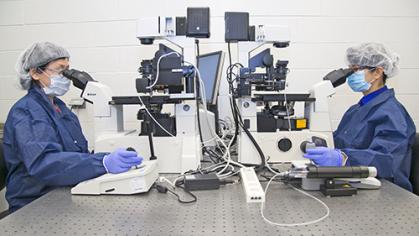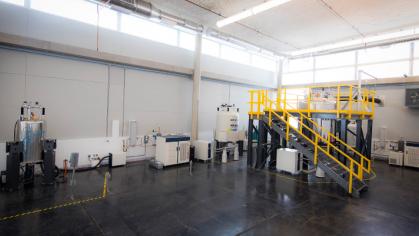Rutgers comprehensive program of animal care includes protocol review, a duly-constituted animal care committee, occupational health and laboratory safety, and full-time veterinary care. Our animal care facilities are USDA-registered and accredited by AAALACi, an association widely recognized for its standards of excellence in laboratory animal care and has an Animal Welfare Assurance with the US Public Health Service (PHS), a requirement for conducting any PHS/NIH-funded animal work. Animal Care works closely with the Institutional Animal Care and Use Committees (IACUC) to provide the highest quality animal care and veterinary oversight of our research animals in support of this commitment to humane animal research.
- Veterinarian Services Assist research staff with development of new animal models and protocols; Ensure appropriate surgical and postsurgical care is provided; Provide instruction and advice regarding handling and restraint, anesthetic and analgesic drug selection; Health monitoring which includes disease prevention and regular surveillance; Diagnosis, treatment and resolution for sick animals
- Veterinary Technical Services Anesthesia support; Breeding and weaning; Animal identification – ear tag, ear notch, tattoo, microchip; Tissue collection for genotyping; Sample collection – blood, urine, other tissues; Dosing; Medical treatments; Drug and supplies ordering; Euthanasia; Training on animal handling, procedures, anesthesia, aseptic surgical techniques, and other as required; Surgical Services
- Husbandry Services Cage changing and cage washing; Providing water and food to animals; Cleaning and maintenance of animal rooms, equipment and facilities; Receiving animal shipments and transferring animals to cages to their rooms


